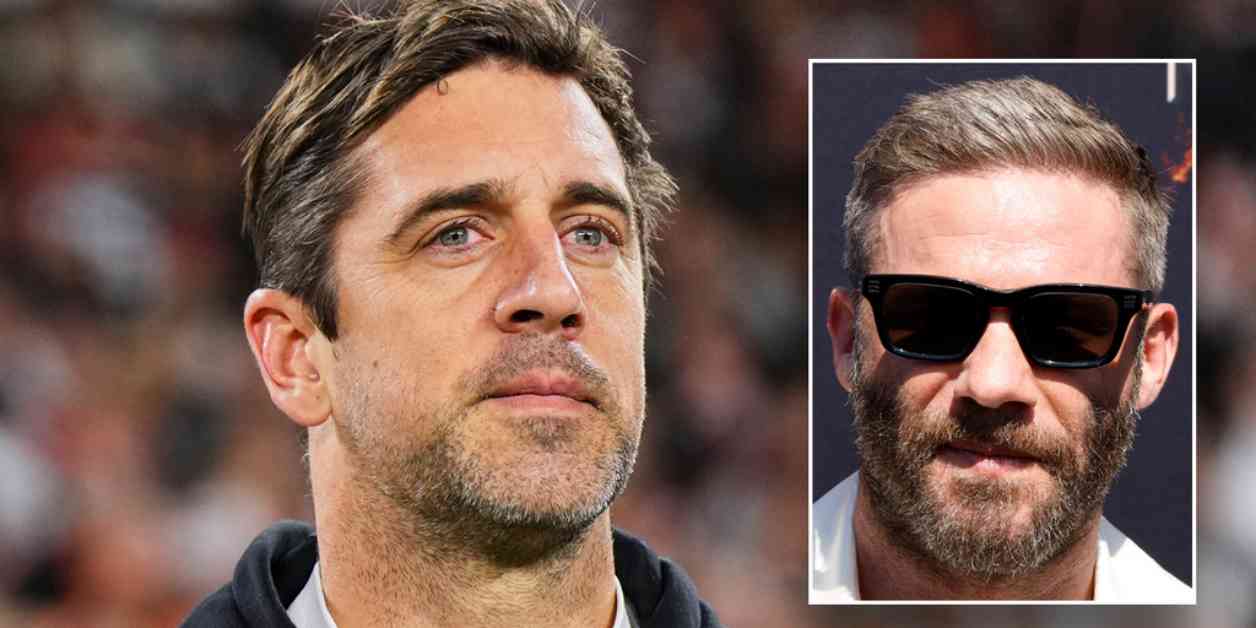Aaron Rodgers, the quarterback for the New York Jets, made headlines when he decided to skip the team’s mandatory minicamp from June 11 to 13. Although he had been present at some Jets OTAs, his absence during the mandatory minicamp was considered “unexcused” by the franchise.
Julian Edelman, a former New England Patriots wide receiver, shared his thoughts on Rodgers’ decision during an appearance on Fox Sports’ “The Herd with Colin Cowherd.” Edelman expressed that he believed it was a “bad look” for Rodgers not to be present at the minicamp, especially as a team leader.
Edelman drew from his experience with Tom Brady, highlighting that even in Brady’s 23rd or 25th year, he never missed a mandatory minicamp. The former Patriots receiver emphasized the importance of team leaders setting an example by attending required team activities.
Additionally, Edelman raised concerns about the potential impact of Rodgers’ absence on the Jets’ performance, especially if they start the season poorly. He pointed out that the media scrutiny in New York City could amplify any distractions within the team, especially considering Rodgers’ injury history and the Jets’ roster changes.
While Edelman acknowledged that Rodgers’ absence might not matter if the Jets were undefeated, he stressed the importance of team cohesion and leadership, particularly in the face of challenges. He speculated that several players in the Jets locker room might question Rodgers’ absence during a crucial team event.
It was noted that the Jets were aware of Rodgers’ planned absence but still deemed it unexcused, leaving him liable for fines. Sports Illustrated’s Albert Breer provided additional context, suggesting that Rodgers’ absence was in a location that couldn’t be excused to maintain fairness and credibility within the team.
Breer hinted at Rodgers’ previous retreats and unconventional choices, such as attending ayahuasca retreats, which could explain his absence from the minicamp. Despite various speculations, the Jets upheld their standards and communicated the consequences of an unexcused absence to Rodgers.
In conclusion, Edelman’s critique of Rodgers’ decision to skip the Jets’ mandatory minicamp reflects the significance of team unity, leadership, and commitment to team activities. The impact of Rodgers’ absence on the Jets’ performance and locker room dynamics remains to be seen as the team prepares for the upcoming season.


















